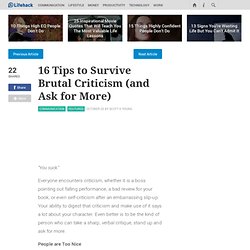

Debate: How can I become good at debating. CommunicationABCCommunicationABC. Simply stating your opinion mostly doesn’t get you where you want to be.

It is not about what you say, it is about how you say it. The way to say it, is SEXI. The acronym SEXI stands for State, Explain, Illustrate. Let’s elaborate on that a little more in three steps. A. Your sales pitch, plea or political statement has to start with stating you’re opinion. B. Now you have to explain this opinion by giving sound arguments.
C. Your statement becomes more tangible by giving examples, showing statistics or (recent) examples. The SEXI-sequence does not work if your answer is a conditional “yes” or “no”. The 8 Key Elements of Highly Effective Speech. I’d like you to take a moment to the following sentence, taken from a recent article exploring the nature of human consciousness: “Neuroplastic mechanisms relevant to the growing number of empirical studies of the capacity of directed attention and mental effort systematically alter brain function.”

Exciting? Hardly! In fact, most of the words you read barely register in your brain, and most of the words you speak barely register in the listener’s brain. In fact, research shows that words are the least important part of communication when you have face-to-face conversations with others. So before you utter another word to another person, memorize this list of the 8 key elements of highly effective speech: 1. 2. 3. 4. 5. 6. 16 Tips to Survive Brutal Criticism (and Ask for More) “You suck.”

Everyone encounters criticism, whether it is a boss pointing out falling performance, a bad review for your book, or even self-criticism after an embarrassing slip-up. Your ability to digest that criticism and make use of it says a lot about your character. Even better is to be the kind of person who can take a sharp, verbal critique, stand up and ask for more.
People are Too Nice Most people won’t tell you what they think of you. I believe it is because most of us have shied away from getting honesty our whole lives. Honesty is a Good Thing, Here’s How to Survive It Here are some tips for surviving the floods of good intentions that might crash upon your ego: Balance Yourself - The salience effect is a cognitive bias where we tend to focus on the most recent or memorable piece of information, ignoring the collective. Now that you have some pain-killers for the attack, here’s how to ask for more: The Power of Saying, "No" Your rating: None Average: 4.7 (6 votes) ======================= "No" is such a simple word.... ======================= only two letters.

Yet saying "No" out loud is harder for most people than saying, "I'll be glad to... " (eleven letters)or "When do you need me to... " (seventeen letters) Stages of Learning to Say "No" Your rating: None Average: 4 (1 vote) One of the most important skills we can learn that will help us manage and fulfill our priorities is to say "No.

" Once we get there, it becomes easier and easier, but initially it can be extremely awkward and unpopular with others. Knowing the stages we’ll go through can help us realize that what’s happening is natural and that its not just that we can’t seem to do it. Stage 1: Identifying Opportunities In this initial stage we have identified our need to learn to say "No" and have made it a goal. Stage 2: Backing Up This next stage of learning and practicing saying "No" is the most difficult. Stage 3: Doing the Right Thing at the Right Time Within this stage, we have arrived at a place where we are able to say no at the right time: immediately. Author's Bio: Donna Birk is a writer, trainer, coach, and Licensed Social Worker. 5 Ways to Change Someone's Mind.
An expert recently claimed that knowing--and using-- a few simple rules can help you change the minds of other people.

The first rule of changing minds is to keep your message short, sharp, and simple. People tend to respond less well to long convoluted arguments, according to Kevin Dutton, Ph.D., author of Dutton's book isn't itself a short or oversimplified how-to book. Dutton, a psychologist and research fellow at the Faraday Institute for Science and Religion at Cambridge Univesity, fills out each of his points with numerous clarifying (and often amusing) examples and anecdotes from every nook and corner of social psychology.
The crux of Dutton's message is contained in his five elements, made easy to remember with the acronym . IMPLICITY: Keep your message short, sharp, and simple to convince people it's true. ERCEIVED SELF-INTEREST: Con men agree it's the key to getting us to do something we didn't think we wanted to. As I read , I had a question about good versus evil .